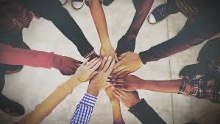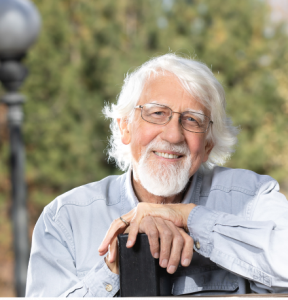By Daniel Kemmis
 I still remember an episode that occurred during one of my early terms in the Montana House of Representatives, back in the 1970s. I don’t recall the specific issue being debated, but for some reason, I thought it germane to mention my upbringing on a small family farm in eastern Montana. What I’ve never forgotten was the sight of several weathered faces on the other side of the aisle swinging around in obvious surprise, scrutinizing me in some combination of wonder and disbelief. All they knew of this young Democrat was that he represented a district in Missoula, which accounted for his liberal ways and gave them reason enough to pay very little attention to anything he might have to say. But there was something about the way they were looking at me and listening to me that had clearly added at least a grain of credibility to the rest of my speech then. For a few minutes, they seemed to hear my family and our farm talking . . . they were, in fact, listening to a neighbor.
I still remember an episode that occurred during one of my early terms in the Montana House of Representatives, back in the 1970s. I don’t recall the specific issue being debated, but for some reason, I thought it germane to mention my upbringing on a small family farm in eastern Montana. What I’ve never forgotten was the sight of several weathered faces on the other side of the aisle swinging around in obvious surprise, scrutinizing me in some combination of wonder and disbelief. All they knew of this young Democrat was that he represented a district in Missoula, which accounted for his liberal ways and gave them reason enough to pay very little attention to anything he might have to say. But there was something about the way they were looking at me and listening to me that had clearly added at least a grain of credibility to the rest of my speech then. For a few minutes, they seemed to hear my family and our farm talking . . . they were, in fact, listening to a neighbor.
That little tableau probably had no lasting effect on my legislative career, but it did play some small part in what I did after I left the legislature. By that time, I had spent a term as minority leader and another as speaker of the house—positions in which I had the opportunity to experience the-rough-and-tumble of politics that had fascinated me as a youngster and contributed to my decision to run for office a few years later. I had mostly enjoyed that side of my time in the legislature, but as I moved on, I also felt a certain discontent that it took me a while to pin down. Those sunburned faces of my adversaries, so clearly recognizing a shared heritage with me in that moment, left me wondering if there might have been a way that something like that could have been given more weight in our deliberations than our all-too-prevalent partisan and ideological divisions.
Get notified when new articles are posted to the EDR blog – sign up for our email list »
Those musings finally led to my first book, Community and the Politics of Place, and more important, led me into a decades-long conversation with hundreds of my neighbors across the West who were, step by step, developing the practices and attitudes of what some of us began to call the place-based collaboration movement—or roughly similar names. This quiet but powerful historical phenomenon has by now produced its own infrastructure of connective and educational components (not least this ERD Blog site) providing a steady stream of teachings and tools to collaboration practitioners. There is little that I could add to the wealth of knowledge now accumulated and constantly refreshed within this network. What I would add instead is a plea to the most practiced or passionate collaborators to think anew about your role in our evolving political culture.
In a nutshell, I would argue that it has now become more crucial than ever to raise our consciousness of the democratic dimensions of collaboration itself, and to ask how the democratic skills and practices that collaborators have been nurturing for some time now can be brought to bear on the healing of our badly-wounded political culture. The problem-solving skills, the open-mindedness, the willingness to listen to each other even when it’s the last thing we want to do—these practices are what make collaboration such a powerful force, but they are also in such dangerously short supply in our larger political culture. As I see it, the Wallace Stegner Center’s EDR Program, and others in the field of collaborative governance, have been engaging in and advancing the cause of collaboration while simultaneously building significant sources of strength into our body politic.
I know that anyone reading this already has enough to do, either in advancing collaborative practice in particular places or in strengthening the field of collaboration itself. But, as I argue in Citizens Uniting to Restore Our Democracy, the time has come when many of us are going to need to establish a practice of “democratic tithing,” where we set aside a portion of the time, energy or resources that we would otherwise devote to particular causes or candidates, and direct them to the healing of democracy itself. The Citizens Uniting website highlights some organizations already doing excellent work in the field of democratic restoration, with particular focus on the development of democratic problem-solving skills and practices. Take a look at the list of organizations, books, articles, podcasts or blogs currently involved in this effort—see how it can help in your collaborative efforts, and add resources we’ve missed. Those of us who have been so diligently and productively engaged in developing collaborative skills and practices now have a particular obligation to turn some portion of our attention to healing democracy itself, and my hope is that we can all share more responsibility for advancing the common good together.
 Daniel Kemmis has served as Minority Leader and Speaker of the Montana House of Representatives and Mayor of Missoula, Montana. He is the author of Community and the Politics of Place, The Good City and the Good Life, and This Sovereign Land. Marc Johnson says of Kemmis’ newest book, Citizens Uniting to Restore our Democracy, “ . . . Kemmis describes with passion and deep insight what ails our democracy. At a time with crippling partisanship, a lack of political good faith, and the corrupting influence of money threaten the very concept of American self-government, this analysis offers a hopeful prescription for renewal.”
Daniel Kemmis has served as Minority Leader and Speaker of the Montana House of Representatives and Mayor of Missoula, Montana. He is the author of Community and the Politics of Place, The Good City and the Good Life, and This Sovereign Land. Marc Johnson says of Kemmis’ newest book, Citizens Uniting to Restore our Democracy, “ . . . Kemmis describes with passion and deep insight what ails our democracy. At a time with crippling partisanship, a lack of political good faith, and the corrupting influence of money threaten the very concept of American self-government, this analysis offers a hopeful prescription for renewal.”
